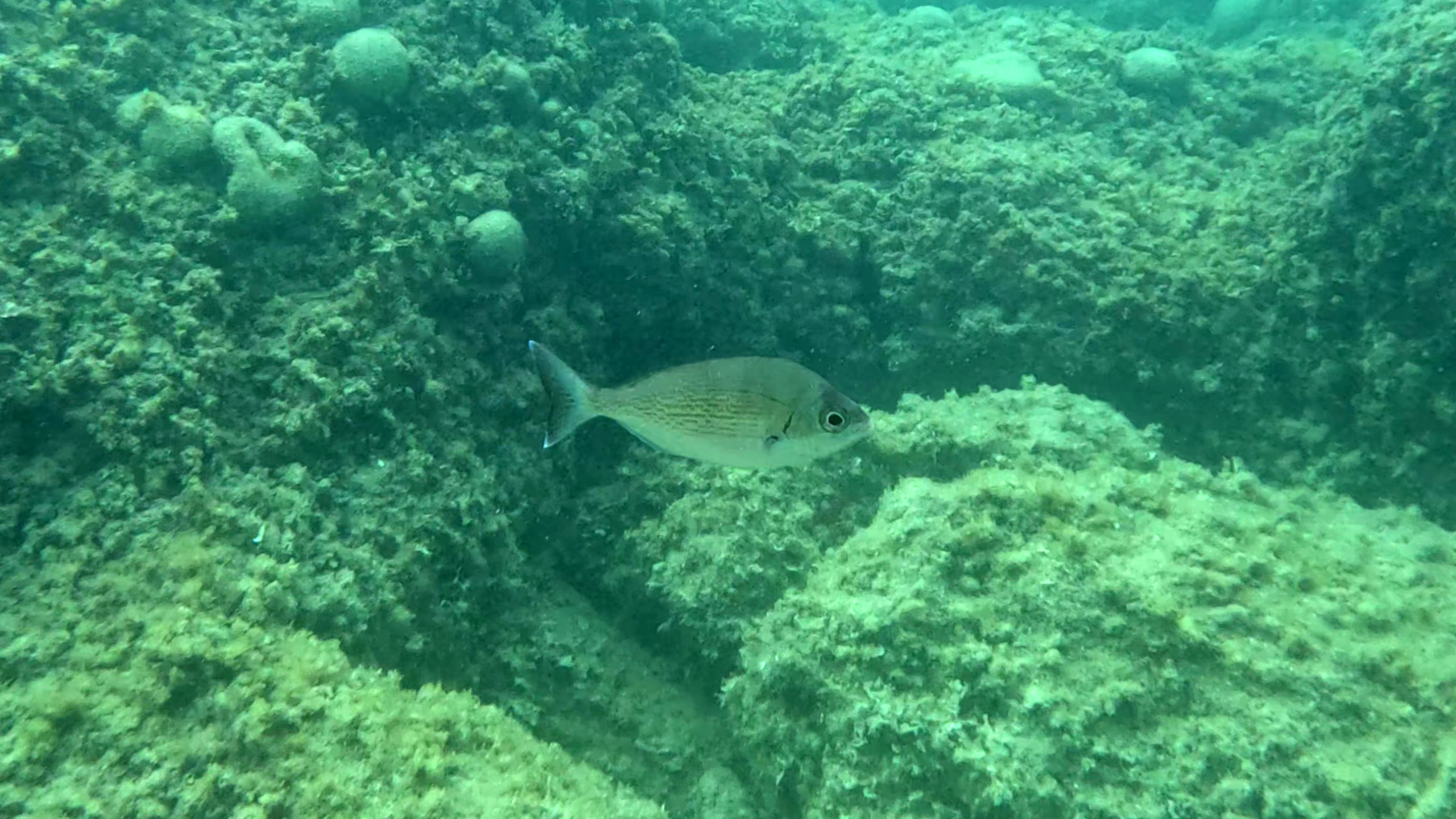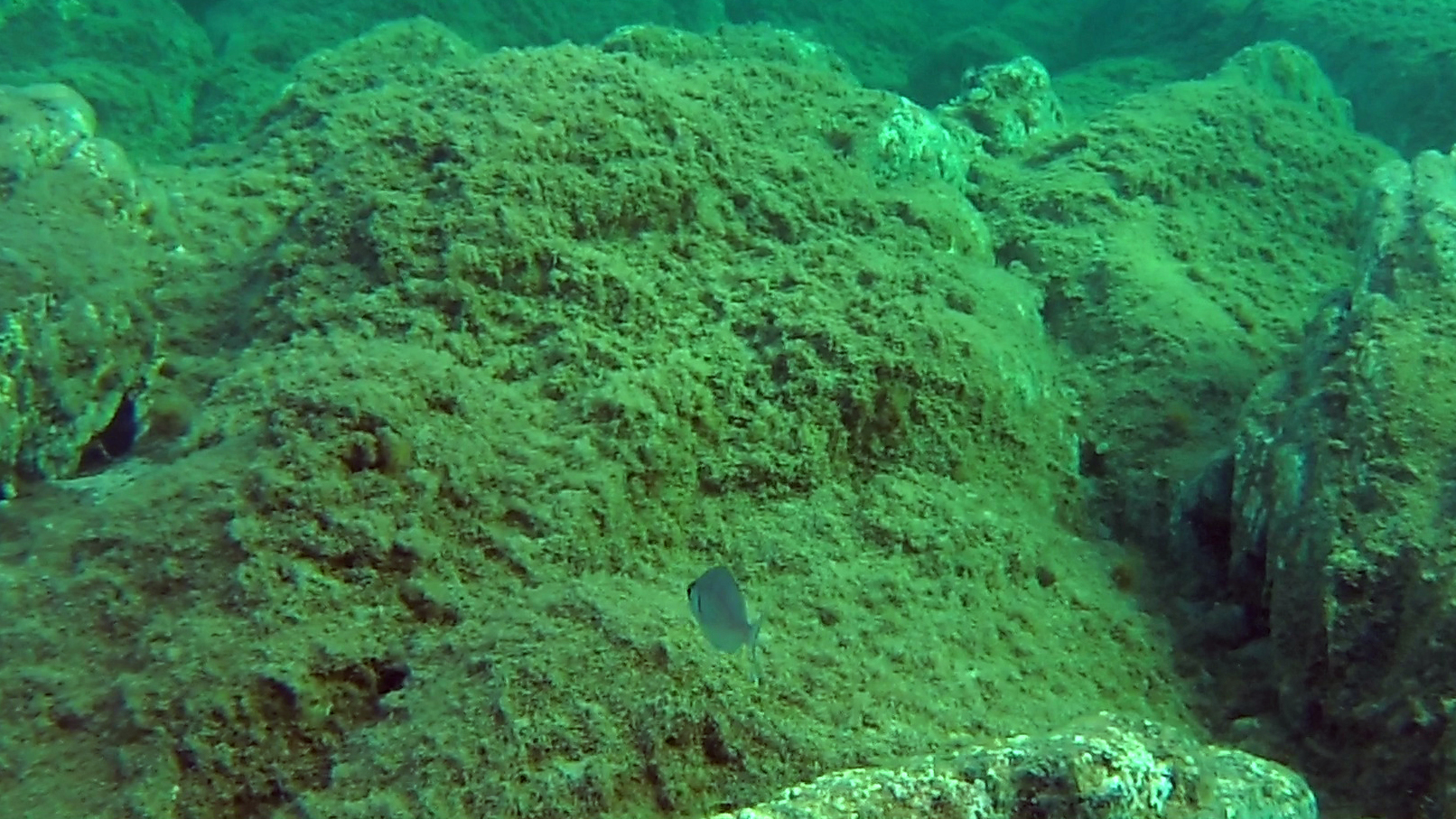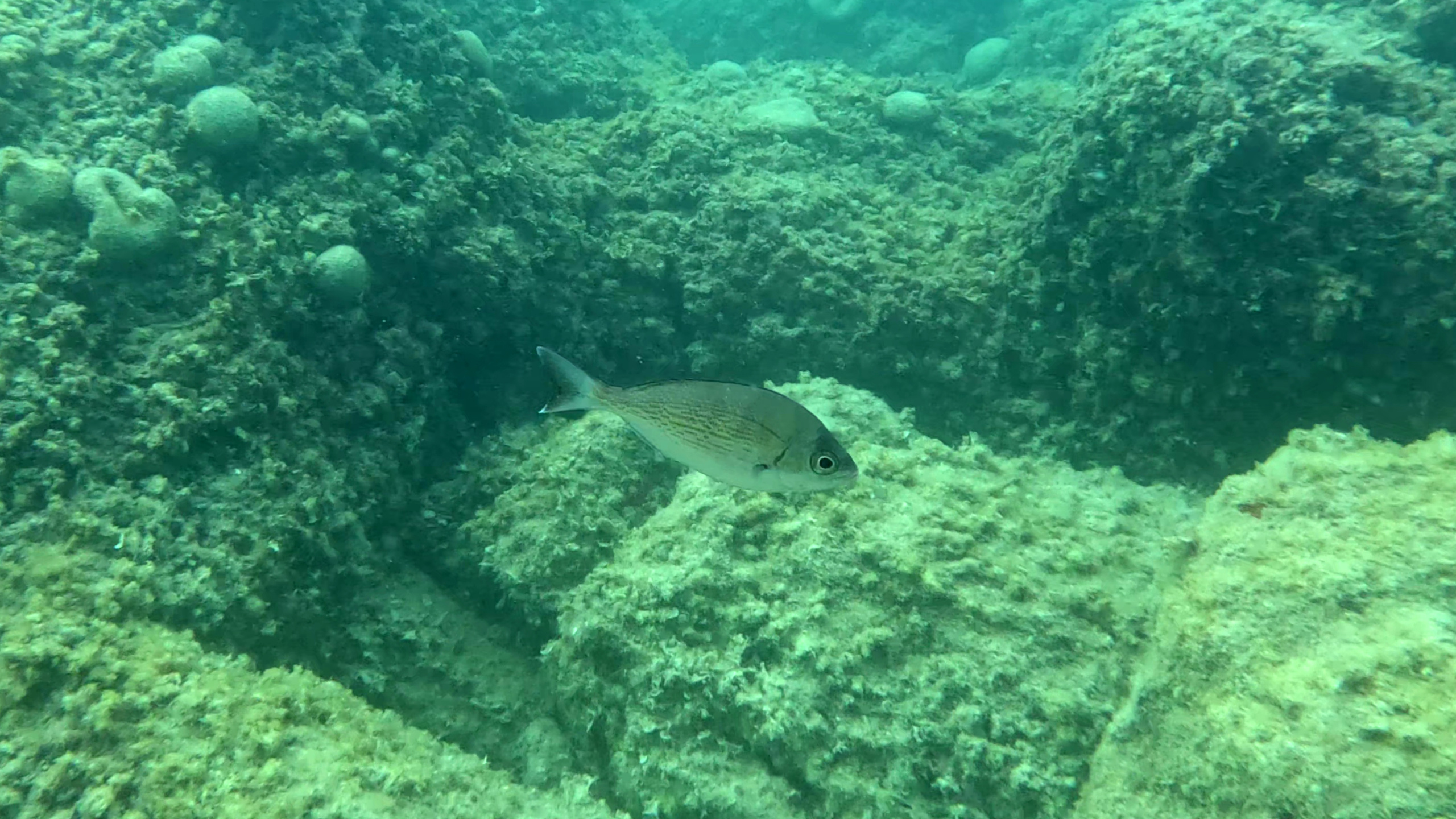Tanuta - Cantaro - Spondyliosoma cantharus
Tanuta Cantaro Black seabream Spondyliosoma cantharus intotheblue.it

Black seabream Spondyliosoma cantharus (Linnaeus, 1758) is a sea fish of the Sparidae family.
Description
The appearance of this fish varies greatly with age. The young specimens up to 6-7 cm are similar in shape to young bream or salps, with the increase of the dimensions the shape of the body becomes thick and the profile high; adult males have a marked cephalic gibbosity and a concave forehead.

The livery is greyish with yellowish and blue longitudinal lines in females and young; the latter may have some dark vertical bands. The adult males are bright blue with dark bands on the back and head and a dark spot on the eye (it resembles the mask of Zorro). Another pattern of coloring (more common in Atlantic fish) than the male is very dark gray with a pair of vertical white stripes on the sides.
It can measure up to 50 cm.

Biology
Confident species when young, while adults are very suspicious and difficult to approach.
Reproduction
It is the only species of Mediterranean sparids not to lay pelagic eggs, a nest, in fact, is built by the male in a sandy clearing and the eggs adhere to each other and to the substrate. It reproduces in spring. It is protogynous hermaphrodite, the young are all females, while the old specimens are males.
Supply
It feeds on invertebrates, especially small crustaceans and polychaetes.

Distribution and habitat
It is one of the northernmost distribution sparids, in fact it is found as far north as Scandinavia while to the south it reaches Angola. It is present throughout the Mediterranean Sea and is very rare in the Black Sea. It is widespread on our coasts but tends to concentrate in a few suitable areas and to be rare all around.
In this species the juveniles occupy environments very different from those of the adults given that they are found on grounds covered by Posidonia oceanica meadows even in shallow waters; the mature specimens instead prefer the hard bottoms from 10 to 100 meters of depth. It is particularly common with shoals off the coast or near rocks and small islands that rise up from deep waters.
https://it.wikipedia.org/wiki/Spondyliosoma_cantharus
Gallery
Video Gallery
